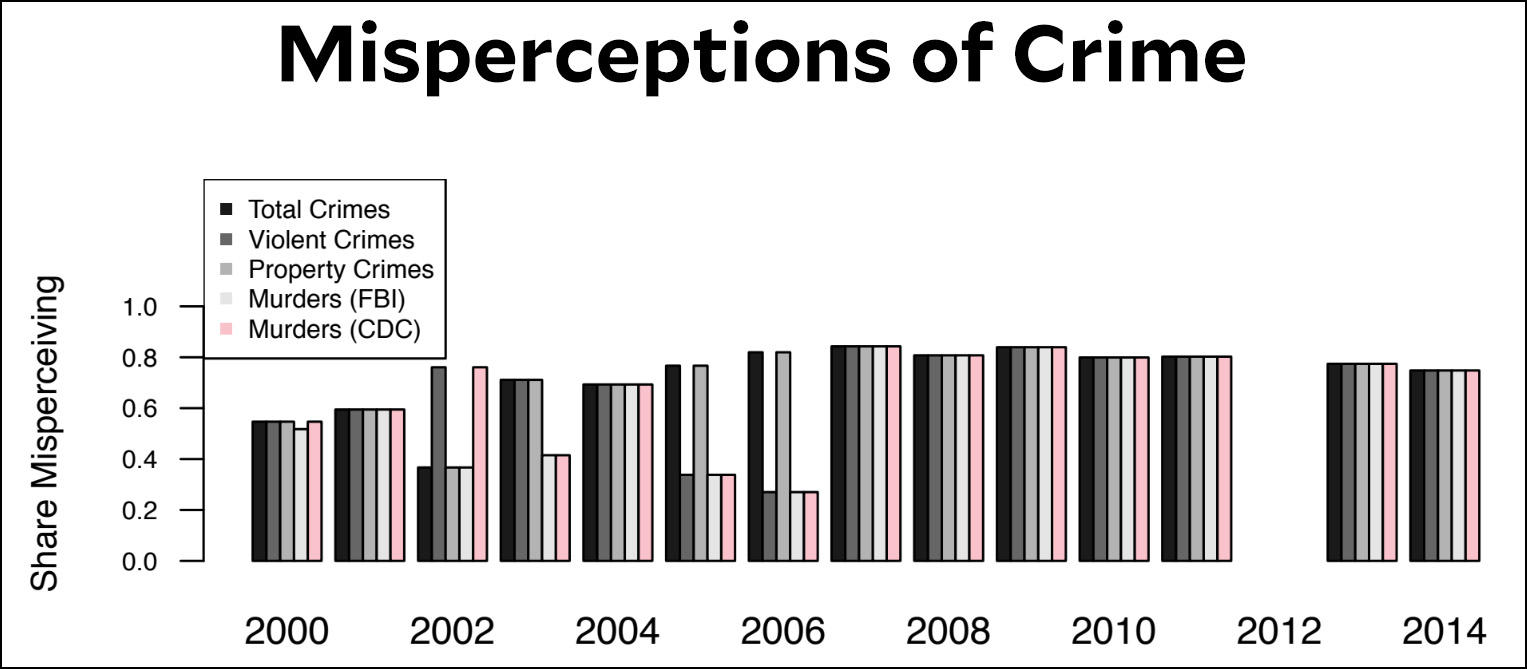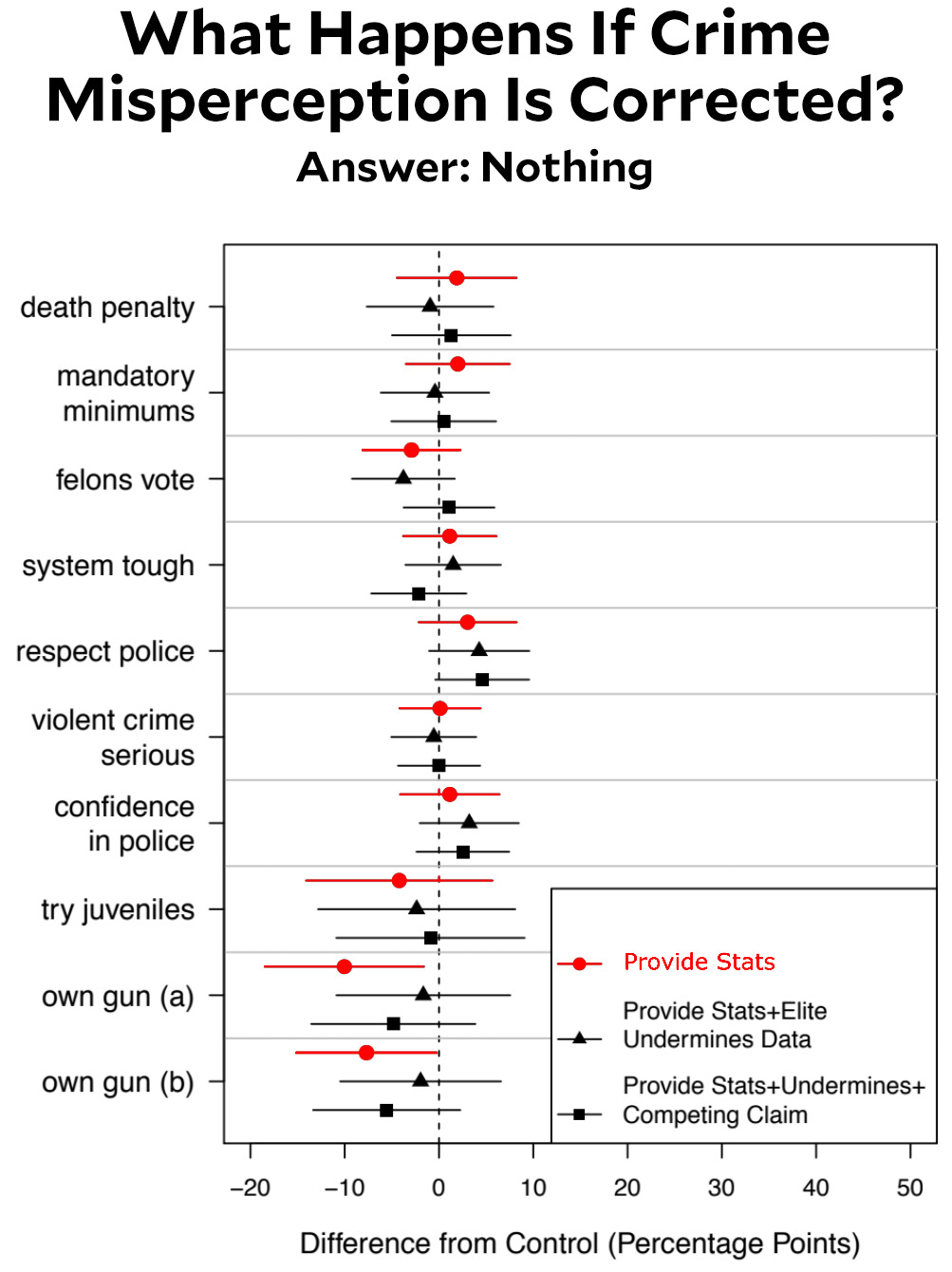Thanks to my work on the lead-crime hypothesis, I’m keenly aware that crime has plummeted over the past 25 years. I’m also keenly aware that most people don’t know this. But why? Brendan Nyhan points me to a new paper today by Jane Esberg and Jonathan Mummolo that investigates this question.
For starters, they confirm via Gallup surveys that people really are still misinformed. In fact, more people are misinformed about crime than they were 15 years ago. About two-thirds of all Americans continue to think that crime is rising:

Long story short, the authors conclude that the problem isn’t due to mismeasurement, nor does it have anything to do with local conditions. People are just as misinformed in high-crime areas as they are in low-crime areas. It doesn’t appear to have anything to do with grandstanding “tough on crime” politicians either. The culprit appears to be simple: no one is really informing the public that crime has dropped. News outlets report on monthly or yearly crime reports but rarely point out that, in general, there’s been a huge drop in crime since the early 90s. I’d add to this that an astonishing amount of local TV news continues to be dedicated to crimes ranging from murder to random hit-and-runs. If you get most of your news from TV, you simply wouldn’t notice anything has changed because, in fact, the amount of TV coverage of crime hasn’t changed.
So far this is only mildly interesting: the news business has little interest in reporting long-term crime trends, so most people have no idea crime is on the decline. But what happens if you do inform them? That should make a difference in opinions about public policy, right? Nope:

When people are told that crime is dropping, they appear to believe it and remember it. However, their opinions about various crime-related policies barely budge. The only real change is a personal one: they’re less likely to say they plan to buy a gun.
That’s sort of discouraging, isn’t it? Still, I wouldn’t take it too seriously. It takes a while for people to change long-held positions, and a single exposure to crime stats probably isn’t enough to do it. What’s really needed is a news media that’s way less reliant on “if it bleeds it leads” but offers far more repetition of the dry and tedious truth that America has a lot less crime than it used to. Unfortunately, that’s not very likely. Exaggerating crime is good for business, so that’s what our news industry gives us.

















